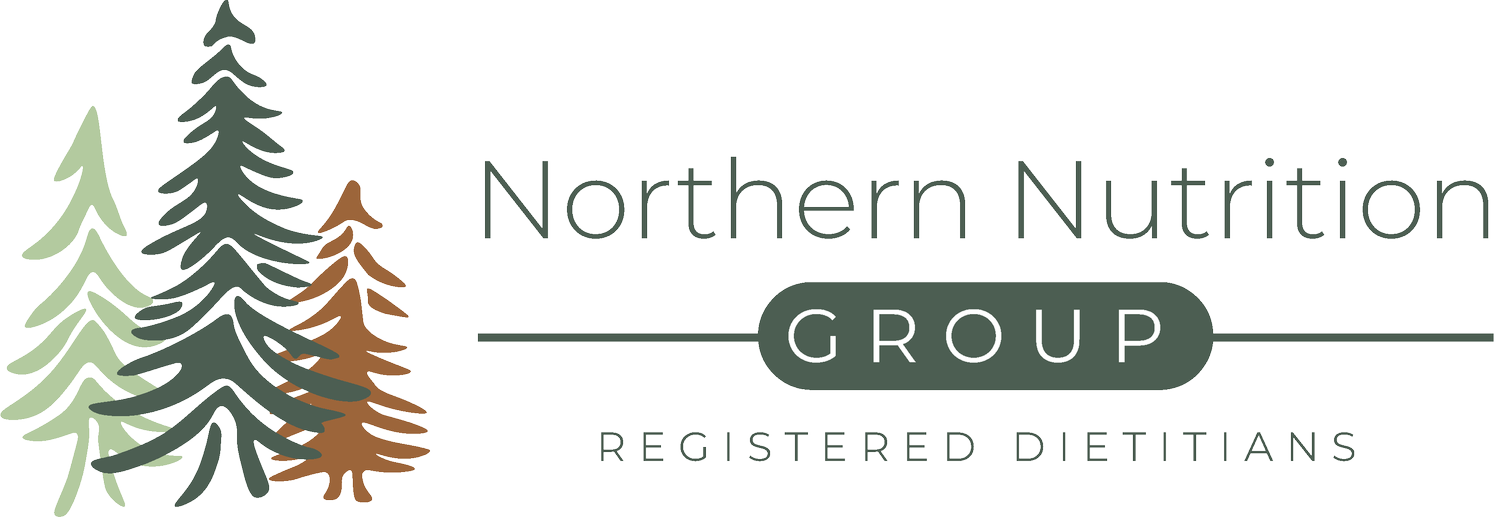Nutrition Buzzwords: Let’s Reclaim Their True Meanings
Many nutrition-related words that originated with a neutral or positive meaning have been distorted by diet culture over time. Concepts of nourishment, balance, and basic science have instead been reshaped to evoke feelings of shame or a false sense of superiority. Whether through marketing tactics, social media trends, or even the way we talk in conversation, these words have strayed from their true meaning. Let’s take a look at a few words and shift the conversation back to their original, factual meanings.
Diet
In today's culture, the word diet has been hijacked to mean restriction, deprivation, and moral superiority. When someone says they’re “on a diet,” it often implies they’re eating less, cutting out food groups, or enduring something unpleasant for the sake of weight loss. Society has twisted the word to equate willpower with worthiness—if you can stick to a restrictive diet, you’re seen as more disciplined or “better.”
But let’s get back to the original and correct meaning: your diet is simply the sum of what you eat. Everyone has a diet. It’s not good or bad—it just is.
A healthier way to talk about diet is to say: “My diet consists of foods I enjoy and that provide the nutrition and energy my body needs.”
Healthy
The word healthy has also become distorted. Ask ten people what “healthy” means, and you’ll get ten different answers. For some, it's cutting out sugar or carbs. For others, it’s eating under a certain calorie limit. Often, it’s tied to appearance—people assume someone is healthy just because they’re thin.
But none of those things alone define true health.
Registered dietitians define "healthy" as eating in a way that supports your physical, mental, and emotional well-being. That means eating enough (not restricting), enjoying a wide variety of foods (not cutting out entire food groups and types), and fueling your body for energy, strength, and resilience. A healthy diet is flexible, inclusive, and rooted in nourishment—not punishment. It’s about creating habits that support your whole self, not following rigid rules or chasing perfection.
Calories
Calories are one of the most misunderstood words in nutrition. At their core, calories are simply energy. Your body needs them to function, survive, and thrive. Every heartbeat, breath, step, blink, and thought is powered by calories. The number of calories in a food tells you how much potential energy it provides—not whether it’s “good” or “bad.”
But diet culture has warped the meaning. People now associate calories with guilt and restriction. We see calorie counts on menus as warnings. We’re told to “burn off” what we eat. Somewhere along the line, calories stopped being a neutral unit of energy and became something we’re supposed to fear.
Let’s change that. Calories are not enemies.
Fat
Fat has become a loaded word—both nutritionally and as a body descriptor.
Nutritionally, fat is one of the three essential macronutrients. Your body needs fat for brain function, hormone production, nutrient absorption, and cell health. It helps you feel full and satisfied, and yes—it makes food taste good. But for decades, “fat” has been vilified in food marketing. Low-fat everything. Fear of eating too much fat. The myth that eating fat will automatically make you fat—it’s simply not true.
Then there’s the word fat as it relates to bodies. It’s often used as a synonym for “unhealthy,” “lazy,” or “undesirable.” But being fat is not a moral failing—it’s just a body size. Like tall, short, broad, or thin. Bodies come in all shapes, and “fat” shouldn’t be an insult, something to fear, or a source of shame.
Let’s reclaim fat—as both a nutrient and a neutral descriptor.
Carbohydrates (Carbs)
Carbs have become diet culture’s favorite scapegoat. They’re blamed for weight gain, fatigue, bloating—you name it. But in reality, carbohydrates are the body’s preferred source of energy. They’re found in fruits, vegetables, grains, dairy, and yes—even sweets. Your brain, muscles, and cells rely on carbs to function properly.
The trend of cutting carbs has led many people to fear foods that are full of nutrition—like whole grains, potatoes, fruit, and legumes. Yes, added sugars are best in moderation, but that doesn’t mean carbs are bad or you have to cut them out completely. If you're experiencing intense sugar cravings, chances are you're not eating enough—and your body is in need of glucose. It’s guiding you toward the quickest source of energy so it can function.
Instead of demonizing sugar, use cravings as information. Ask yourself: “Am I fueling myself adequately”
Let’s bring carbs back to the table.
It’s time to take back these words from diet culture and return them to their true, empowering meanings. Words like diet, healthy, calories, fat, and carbs were never meant to shame, restrict, or divide us. When we understand them in their original context, we can build a more balanced, compassionate, and informed relationship with food—and with ourselves. Let’s choose language that reflects nourishment, not negativity. Because when we shift the way we talk about food and bodies, we help create a culture where health is rooted in care, not control.
Written by Kim Johnson, RD, LN | Owner
Kim specializes in eating disorders, disordered eating patterns, IBS, nutrition management for neurodivergent individuals (ADD/ADHD and autism spectrum disorder), weight concerns addressed through a weight-inclusive approach, and supporting those ready to move past chronic dieting.
